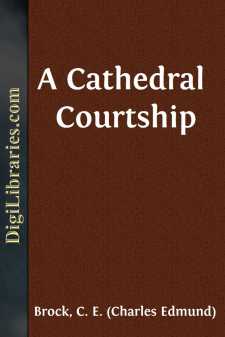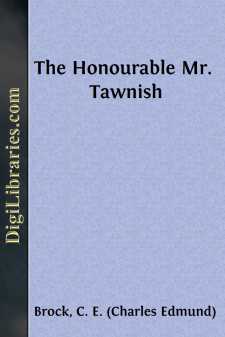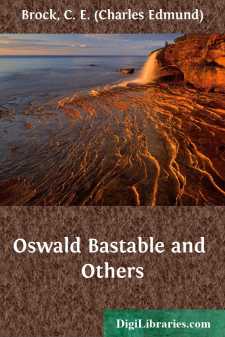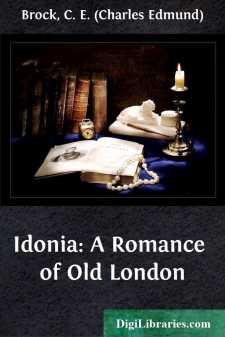Categories
- Antiques & Collectibles 13
- Architecture 36
- Art 48
- Bibles 22
- Biography & Autobiography 813
- Body, Mind & Spirit 142
- Business & Economics 28
- Children's Books 12
- Children's Fiction 9
- Computers 4
- Cooking 94
- Crafts & Hobbies 4
- Drama 346
- Education 46
- Family & Relationships 57
- Fiction 11828
- Games 19
- Gardening 17
- Health & Fitness 34
- History 1377
- House & Home 1
- Humor 147
- Juvenile Fiction 1873
- Juvenile Nonfiction 202
- Language Arts & Disciplines 88
- Law 16
- Literary Collections 686
- Literary Criticism 179
- Mathematics 13
- Medical 41
- Music 40
- Nature 179
- Non-Classifiable 1768
- Performing Arts 7
- Periodicals 1453
- Philosophy 64
- Photography 2
- Poetry 896
- Political Science 203
- Psychology 42
- Reference 154
- Religion 513
- Science 126
- Self-Help 84
- Social Science 81
- Sports & Recreation 34
- Study Aids 3
- Technology & Engineering 59
- Transportation 23
- Travel 463
- True Crime 29
C. E. (Charles Edmund) Brock
Charles Edmund Brock (1870–1938) was a British artist and illustrator known for his detailed work in both pen and ink and watercolor. He illustrated classics such as "Jane Eyre" by Charlotte Brontë and "Pride and Prejudice" by Jane Austen, capturing the essence of the Victorian and Edwardian periods. Brock was renowned for his ability to vividly portray the characters and scenes of these novels, bringing the stories to life. His illustrations were highly regarded for their historical accuracy, delicate lines, and charming character depictions.
Author's Books:
Sort by:
We are doing the English cathedral towns, Aunt Celia and I. Aunt Celia has an intense desire to improve my mind. Papa told her, when we were leaving Cedarhurst, that he wouldn’t for the world have it too much improved, and Aunt Celia remarked that, so far as she could judge, there was no immediate danger; with which exchange of hostilities they parted. We are travelling under the yoke of an [p2] iron...
more...
Chapter One Introducing Mr. Tawnish, and what befellat "The Chequers" Myself and Bentley, who, though a good fellow in many ways, is yet a fool in more (hence the prominence of the personal pronoun, for, as every one knows, a fool should give place to his betters)—myself and Bentley, then, were riding home from Hadlow, whither we had been to witness a dog-fight (and I may say a better fight I...
more...
AN OBJECT OF VALUE AND VIRTUE This happened a very little time after we left our humble home in Lewisham, and went to live at the Blackheath house of our Indian uncle, which was replete with every modern convenience, and had a big garden and a great many greenhouses. We had had a lot of jolly Christmas presents, and one of them was Dicky's from father, and it was a printing-press. Not one of the...
more...
CHAPTER I IN WHICH I LEARN FOR THE FIRST TIME THAT I HAVE AN UNCLE The first remembrance I hold of my father is of a dark-suited tall man of an unchanging gravity on all occasions. He had, moreover, a manner of saying "Ay, ay," which I early came to regard as the prologue to some definite prohibition; as when I asked him (I being then but a scrubbed boy) for his great sword, to give it to a...
more...





